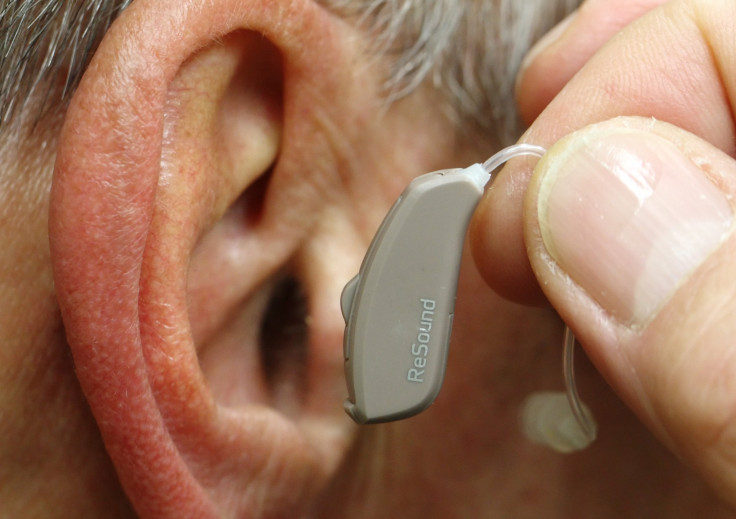New Generation Hearing Aids And Technologies Help To Reduce Anxiety And Depression

About one-third of American adults between the ages of 65 and 75 have some degree of hearing loss, while for those who are even older, that number rises to nearly one in two, the Mayo Clinic notes. A new study suggests hearing loss — or hearing less — is under-treated despite evidence that the latest generation of hearing aids may help to lessen depression and anxiety while also improving mental functioning.
“Anger, frustration, depression and anxiety are all common among people who find themselves hard of hearing,” Dr. David Myers, a psychology professor at Hope College in Michigan, stated in a press release. “Getting people to use the latest in hearing aid technology can help them regain control of their life and achieve emotional stability and even better cognitive functioning.”
Heredity and chronic exposure to loud noises are the main factors that contribute to hearing loss, scientists say. While people commonly fear excessive earwax might contribute to their hearing loss, it usually does so only temporarily. A 2011 study investigated hearing loss and its relationship to dementia and found the risk of all-cause dementia increased with hearing loss severity. Since social isolation has been linked to dementia (and other cognitive disorders), this result makes intuitive sense.
“Whether hearing loss is a marker for early stage dementia or is actually a modifiable risk factor for dementia deserves further study,” the researchers of this study concluded.
Past research also indicated, Myers explains, that people with hearing loss who didn’t use hearing aids were 50 percent more likely to suffer from sadness or depression than people who did use them. Hearing aid wearers also were found to be much more likely to participate in social activities. Adults between the ages of 20 and 69 are half as likely as those 70 or older to use hearing aids, Myers notes. Only 20 percent of people who might benefit from treatment actually seek help, reports the American Speech-Language-Hearing Association, and, commonly, people wait an average of 10 years from a diagnosis of hearing loss before getting hearing aids.
Vanity, Myers believes, along with a lack of awareness about how much they are missing cause these delays. (A justified fear of appearing “too” old in a society that prizes youth is another reason people would not seek treatment, suggests Medical Daily.) Myers says the newest generation hearing aids, some of which work with your smartphone, and hearing loop technology could help those with hearing loss become more social and involved.
The Answer is Tech
Loop technology acts like Wi-Fi for hearing aids by transmitting sound signals directly into an aid (or cochlear implant), where it is received by a device called a telecoil. In this system, then, hearing aids serve as wireless ear buds. Popular in Great Britain and Scandinavia, the hearing loop system works especially well in public spaces with reverberant sound, such as train stations, and in places with lots of background noise, such as convention centers. Myers helps to advocate for installations in Arizona, California, Colorado, Florida, Minnesota, New Mexico, Utah, Washington state, and even New York City taxicabs. Currently, the Hearing Loss Association of America is promoting the hearing loop system to the chambers of the U.S. House of Representatives and the Supreme Court.
“Many hard of hearing people battle silently with their invisible hearing difficulties, straining to stay connected to the world around them, reluctant to seek help,” said Myers. He himself began to lose his hearing as a teenager, due to a genetic condition, yet he did not get hearing aids until he was in his 40s.
Source: Myers D. A Quiet World: The Psychology of Hearing and Hearing Loss. American Psychological Association Convention. 2015.



























